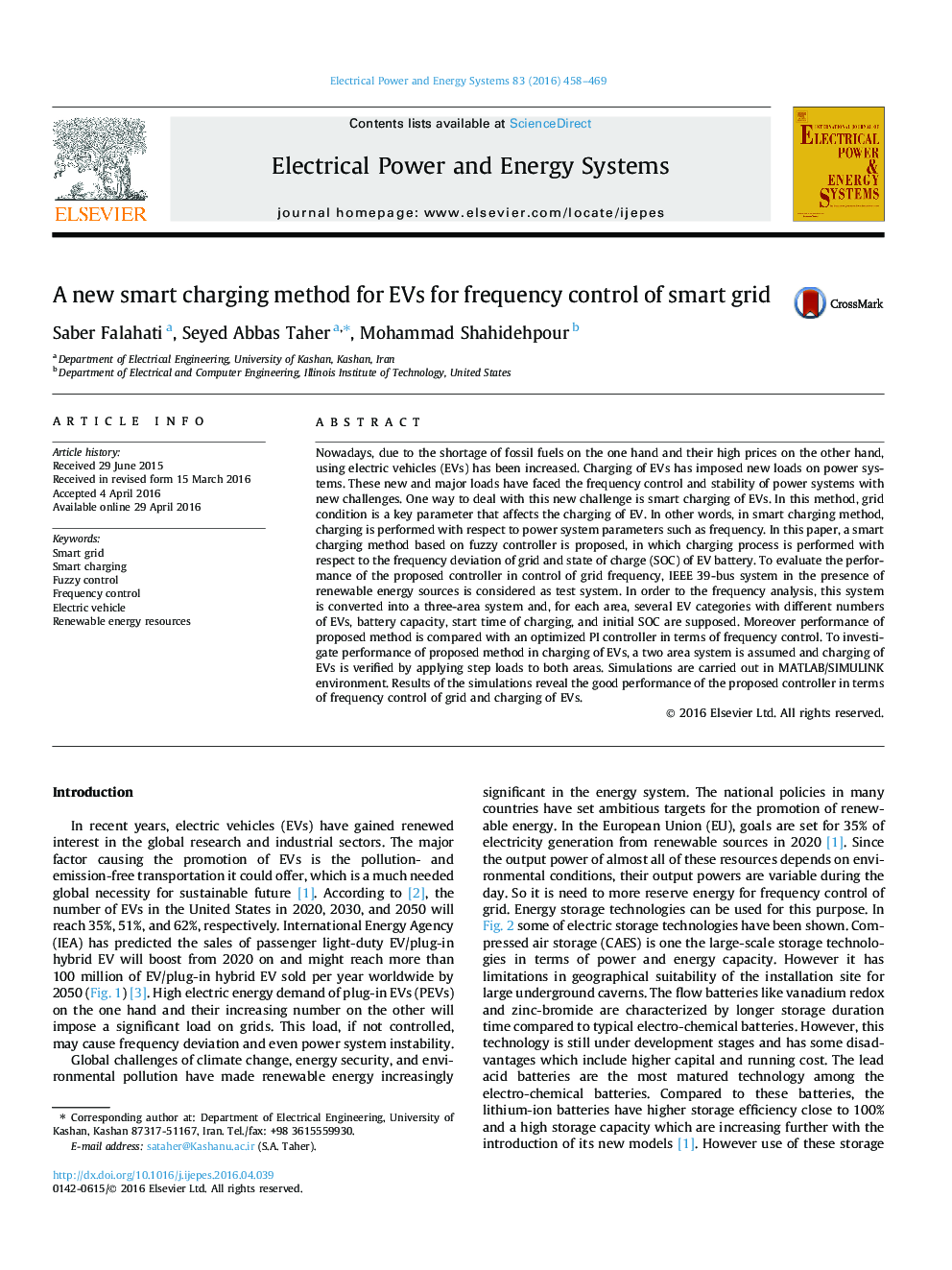| Article ID | Journal | Published Year | Pages | File Type |
|---|---|---|---|---|
| 400351 | International Journal of Electrical Power & Energy Systems | 2016 | 12 Pages |
•Charging of electric vehicles has imposed new loads on power systems.•These new loads have faced the frequency control and stability of power systems with new challenges.•One way to deal with this new challenge is smart charging of electric vehicles.•In this study, a smart charging method based on fuzzy controller is proposed.•Results reveal the good performance of the proposed controller in terms of frequency control.
Nowadays, due to the shortage of fossil fuels on the one hand and their high prices on the other hand, using electric vehicles (EVs) has been increased. Charging of EVs has imposed new loads on power systems. These new and major loads have faced the frequency control and stability of power systems with new challenges. One way to deal with this new challenge is smart charging of EVs. In this method, grid condition is a key parameter that affects the charging of EV. In other words, in smart charging method, charging is performed with respect to power system parameters such as frequency. In this paper, a smart charging method based on fuzzy controller is proposed, in which charging process is performed with respect to the frequency deviation of grid and state of charge (SOC) of EV battery. To evaluate the performance of the proposed controller in control of grid frequency, IEEE 39-bus system in the presence of renewable energy sources is considered as test system. In order to the frequency analysis, this system is converted into a three-area system and, for each area, several EV categories with different numbers of EVs, battery capacity, start time of charging, and initial SOC are supposed. Moreover performance of proposed method is compared with an optimized PI controller in terms of frequency control. To investigate performance of proposed method in charging of EVs, a two area system is assumed and charging of EVs is verified by applying step loads to both areas. Simulations are carried out in MATLAB/SIMULINK environment. Results of the simulations reveal the good performance of the proposed controller in terms of frequency control of grid and charging of EVs.
